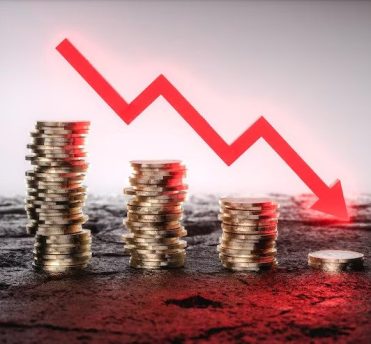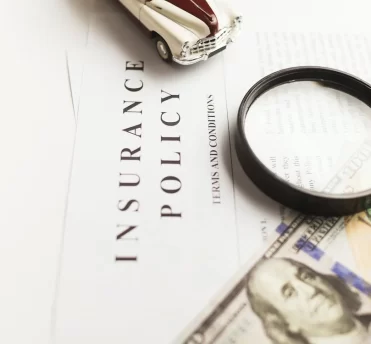Finance

3 July, 2023 5 Minutes Read
Running a business can be difficult and costly, especially if they make financial mistakes. Many business owners are unaware of the potential pitfalls that come with managing their finances, leading to avoidable errors that could have been avoided. This article will take an in-depth look at some of the most common financial mistakes business owners make. From failing to plan for taxes to not having enough cash flow on hand, there are many missteps that small business owners should be aware of before setting out on their own. Read on to learn more about these costly oversights and how they can be prevented in order to ensure a successful transition into entrepreneurship. Failing To Calculate Taxes Accurately Business owners often make mistakes when calculating their taxes, leading to inadequate or inaccurate payments. One common mistake is failing to update tax brackets and deductions after a change in income level. This could mean businesses miss out on potential savings that they could have taken advantage of if they had updated their calculation methods sooner. Another issue is not accurately estimating the amount owed for quarterly estimated taxes; without careful planning, business owners may find themselves owing more than expected during tax season. Additionally, many business owners forget to account for self-employment taxes when computing their total taxable income. Failing to do so can lead to significant financial losses down the road. Overlooking Cash Flow Needs One of the most common financial mistakes business owners make is overlooking their cash flow needs. Without adequate cash, businesses may find themselves unable to pay suppliers or employees on time, as well as not having enough funds to meet any unexpected expenses that arise. This can be especially problematic for small businesses with limited resources and access to capital. To avoid this mistake, it's important for business owners to create a budget and cash flow plan so they can anticipate future needs and have an idea of how much money is available each month. Additionally, regularly reviewing these documents allows you to adjust them if necessary in order to ensure your company has sufficient funding at all times. Not Having Proper Insurance Coverage While overlooking cash flow needs can be a costly mistake, not having proper insurance coverage is also essential for any business owner. Without the right protection, businesses may face serious financial losses if something goes wrong. A basic policy should include property and liability protection to cover lost or damaged equipment as well as potential legal claims from customers or other parties. It's important to review your coverage regularly to ensure it meets changing industry standards and regulations regarding employee safety, data privacy, and product quality. Failure to do so could leave you exposed in the event of an unexpected incident that results in high costs or litigation. As such, every business owner should make sure their organization has adequate insurance coverage and keep up with regular reviews of their policies. Making Poor Investment Decisions One of the most common financial mistakes business owners make is making poor investment decisions. Many times, they don't take enough time to research and understand their investments before investing or diversifying their portfolios. They also often invest too much in one area without truly understanding the potential risks associated with that particular asset class. Additionally, many entrepreneurs get too caught up in short-term gains and fail to consider long-term strategies when it comes to their investments. As a result, they can end up losing more money than they initially intended to put at risk. To avoid these pitfalls, business owners should take the time to thoroughly evaluate any potential investment opportunities and develop an appropriate strategy for managing their assets over the long term. Ignoring Credit Card Debt Another common mistake business owners make is ignoring credit card debt. This type of debt can quickly balloon out of control and become unmanageable if left unchecked. Ignoring this kind of debt usually results in fees, penalties, and higher interest rates that can further complicate a company's finances. Not to mention, it affects the owner's personal credit score as well! Staying on top of payments is essential for any business owner looking to maintain a healthy financial profile and avoid unnecessary costs. Consider utilizing options like Payhawk’s credit and debit cards which allow you to easily acknowledge your payments. Ignoring Retirement Savings One of the most common financial mistakes business owners make is neglecting their retirement savings. Many entrepreneurs focus on putting all their time and energy into growing their businesses, leaving little to no room for planning for retirement. Unfortunately, this oversight can have serious consequences down the line and leave them without a secure plan for life after the end of their professional career. Business owners should set aside funds in an IRA or 401(K) as early as possible so they are able to enjoy a comfortable lifestyle when it's time to retire. Without doing so, they run the risk of not having enough money saved up when that day comes. Inadequately Managing Business Costs Business owners often make the mistake of not adequately managing their costs, leading to unsustainably high overhead costs. This can be due to either overestimating sales or underestimating expenses, resulting in an inability to cover all necessary operating costs. Poor cost management also causes businesses to miss out on potential savings opportunities such as discounts and tax deductions. Furthermore, inadequate cost management can lead business owners to miss important deadlines for filing taxes and other compliance-related documents that could result in costly penalties. Business owners should take a proactive approach when it comes to managing their costs, carefully tracking them on a regular basis and taking advantage of any savings opportunities available. Conclusion It's important for business owners to be aware of the most common financial mistakes that they could make so they can take steps to avoid them. Not accurately calculating taxes, overlooking cash flow needs, not having proper insurance coverage, making poor investment decisions, ignoring credit card debt and retirement savings, and inadequately managing business costs are all errors that should be avoided at all costs. Taking time to understand finances better will help ensure success in any business venture. I urge every small business owner to research these topics thoroughly before starting a business or making any major financial decisions. Read Also: Characteristics of A Good Financial Planning Service and How to Choose One Pros And Cons Of “Buy Now, Pay Later” Payment Is It Okay To Start A Business Without A Degree?

3 March, 2023 4 Minutes Read
One can see why BNPL payments from companies like Affirm, Klarna, and Afterpay are becoming increasingly popular: they allow customers to make immediate purchases without worrying about making a large initial payment. This trendy new form of credit allows buyers to spread the cost of big-ticket internet acquisitions out over several weeks or months with no interest to worry about. Approval is usually fast and painless because it occurs automatically on the checkout page of an online store. With the rise of online purchasing during the pandemic, BNPL financing became increasingly commonplace. The number of BNPL options provided by five large lenders increased by 970% between 2019 and 2021, according to a new report by the Consumer Financial Protection Bureau (CFPB). The astonishing increase in value from $2 billion in 2019 to $24.1 billion in 2021. There are benefits to using BNPL products, but there are also some negatives. The Consumer Financial Protection Bureau (CPFB) expressed worry in a press release that BNPL is "designed to entice consumers to purchase more and borrow more," which puts borrowers at a greater risk of incurring debt that they cannot repay. That's why the Consumer Financial Protection Bureau plans to approach BNPL lenders the same way it does credit card issuers: with strict regulation. Executives at BNPL praised the CFPB's work to increase industry openness and safeguards for consumers. Max Levchin, founder and CEO of Affirm, hailed the research as "a huge step forward for honest finance" in a Twitter post. Levchin noted, "Consumers deserve perfect clarity and should have the opportunity to pay over time without late fees, revolving, or delayed interest." To "accelerate solid, balanced regulation of the industry that will drive competition and enhance results for all customers," as Klarna CEO Sebastian Siemiatkowski tweeted, "I look forward to cooperating with the CFPB." Discover the benefits and drawbacks of buy now, pay later services, the credit card alternative that is typically heralded as the next big thing in online buying. Benefits Of BNPL BNPL lenders promote their products' user-friendliness, streamlined interfaces, and potential cost savings in comparison to conventional consumer loans. Furthermore, they can provide financing to those who may not be approved for traditional forms of financing like credit cards or personal loans due to a lack of or inadequate credit history. According to the CFPB, "the financial and operational gains [of BNPL loans] over legacy credit products are genuine and considerable." Those advantages are summed up below: No Interest In most cases, BNPL lenders would not add interest to monthly payment plans. To many people, that is the selling point. No Overdue Charges Late fees for BNPL loans can vary widely amongst lenders. Before signing any paperwork, be sure you completely grasp the loan's terms. Read Also: Which Best Describes The Difference Between Stocks And Bonds? Simple And Practical Payment Plan Many BNPL loans include four equal payments spread out over a few weeks. There is no revolving credit line, as there would be with a major credit card, and the loan is wiped off after payments are made in full. Customers are less likely to miss a payment because many BNPL lenders provide autopay (and require customers to keep a debit card or credit card on file). The Consumer Financial Protection Bureau (CFPB) warns that overdraft fees are just one potential problem that might arise from required autopay. Quickly Granted Permission A BNPL payment approval takes just seconds for online consumers. Drawbacks Of BNPL The potential negative consequences may outweigh the potential positive ones. Overspending and borrowing too much are both encouraged by BNPL loans, and they lack the built-in safeguards of credit cards. Prior to taking out a BNPL loan, borrowers should consider the following potential drawbacks. Excessive And Unsustainable Debt The Consumer Financial Protection Bureau (CFPB) warns that individuals may take on more debt than they can handle if obtaining a BNPL loan is too simple. The Consumer Financial Protection Bureau warned that recurring BNPL loan utilization over an extended period of time could also lead to financial hardship. Damage To Credit Ratings Equifax and other credit reporting agencies are starting to include BNPL information in credit reports. While this has the potential to benefit many people (a history of on-time payments will increase your credit score), it also means that a BNPL payment made late could negatively affect your score, making it more difficult and expensive to borrow money in the future. Fees Incurred Late fees and other service costs are a part of the BNPL pricing structure for some plans. According to the CFPB, a BNPL late fee is typically around $7 per missed payment for loans that average approximately $135, however, this varies from lender to lender. Hidden Interest If you use a credit card to pay for a BNPL loan and don't pay it off in full every month, you will be charged interest on what was supposed to be a zero-interest loan. Issues Of Data Privacy Director of the Consumer Financial Protection Bureau Rohit Chopra recently issued a warning, saying, "Buy Now, Pay Later lenders can obtain exceptionally precise information about your buying habits, in a way standard cards cannot." He argued that this information could be useful to lenders in encouraging customers to spend and borrow more. Compared To Credit Cards, Fewer Protections For Consumers Short-term loans secured by a company's BNPL are a relatively new concept. There are fewer safeguards in place for buyers of such products due to laxer regulations. Product complaints and returns can be more challenging to resolve when using a BNPL loan as opposed to using a credit card. Read Also: Is Real Estate Investment Trusts a Good Career Path in 2021 – Latest Updates Which Social Media App Has A Ghost As Its Mascot? Top 7 Oldest Companies In America – Latest Updates!

1 March, 2023 3 Minutes Read
If you're considering putting your money into cryptocurrency, the first step is usually to purchase crypto from one of the more popular and highly-traded assets. One leading coin in this market is Solana (SOL), a crypto project that developers use for creating decentralized applications, blockchain games, NFTs, and other digital products. SOL coin is one of the most sought-after digital assets, boasting an impressive trading volume of over $470 million and a skyrocketing market cap surpassing $9 billion. As of February 2023, the Solana crypto price is $24.26. If you're curious about the Solana project, here are some highlights to get you started: Solana relies on the Proof-of-Stake mechanism, which enables anyone with SOL coins to leave a portion of those coins on the network in exchange for more. This process is known as crypto staking and allows for far more efficient coin generation than mining does; plus, it's much less expensive and substantially better for our environment. All in all, the maximum supply of SOL coins is 489 million. Open-source Solana is available for anyone. Immediate and reliable transactions that are completed quickly, without any delays. How to Buy Solana? On the WhiteBIT exchange, you will find the Solana chart, which will help you analyze the coin and its history for better price prediction and trading. WhiteBIT is an esteemed exchange for purchasing SOL tokens. We've put together this comprehensive guide on how to buy Solana using WhiteBIT: Get yourself set up with a WhiteBIT account - fast and easy. All you need to do is provide us with a few details on who you are, verify your identity, and voila – you're ready for the next chapter of crypto trading. To fund your account, you can use one of our various deposit options, including bank transfer, credit/debit card, and cryptocurrency transfer. To begin trading Solana on WhiteBIT, first deposit funds into your account. Once you’ve done that, head over to the Solana page and select which pair you wish to buy or sell - SOL/USD or SOL/BTC, for instance. Input how much Solana you would like to acquire, and inspect the details of your transaction - which comprise SOL price and fees - before confirming. When you're content with the specifics of your trade, confirm it and wait for everything to be finalized. Withdraw your Solana for multiple purposes. Now, you have the power to remove your Solana and store it in a personal wallet or leave it on an exchange if you'd like to make further trades. You may also convert Solana to USD and withdraw dollars to your bank card when needed. All in all, purchasing Solana on WhiteBIT is a relatively simple process. Nonetheless, like any other investment opportunity, it's essential to conduct your own research and weigh the possible risks and rewards of investing in any cryptocurrency before making a decision. Moreover, make sure you follow secure practices such as using two-factor authentication and safeguarding your private keys. Read Also: Characteristics of A Good Financial Planning Service and How to Choose One Which Best Describes The Difference Between Stocks And Bonds? What Are The Cheapest Models Of Cars To Insure

28 February, 2023 4 Minutes Read
As a car owner, it is your main responsibility to purchase car insurance that provides financial and legal protection in the event of an accident of any kind. This involves you paying a certain fee, called a premium, to a professional insurer in exchange for compensation for a large loss or damage that happens to you, your vehicle, and other passengers. In general, when shopping for car insurance, budget is one of the most important things people consider. Their main goal is to find the most comprehensive auto insurance policy which will cover everything from damages to physical injuries, and all that for a fair price. To determine the right premium for you, insurance companies consider several factors, including your age, driving history, location, and vehicle type. This is because the type of car you own determines your risk level, which has a direct impact on your premium. Therefore, if you want to save on your insurance, you should research the most common types of cars with low insurance rates and choose the most suitable one for you. To get you started, we showcase the six cheapest models of cars to insure. Subaru Forester The Subaru Forester is one of the most popular sports cars today. It is a low-horsepower vehicle that is best known for its good safety ratings as it is equipped with plenty of features and anti-theft devices that help reduce the likelihood of drivers getting into an accident or having their car stolen. This low risk means people are less likely to file an insurance claim which leads to more affordable insurance rates. Ford Fiesta Another car model which comes with a low insurance rate is Ford Fiesta. This is a type of car that has the high-tech features of other more expensive car models, but it is preferred because of its appearance and decent interior quality. The reason why it is regarded as one of the cheapest car models is because of its 75 PS gasoline engine, which contributes the most to the vehicle's economy. Kia Picanto Although the Kia Picanto lacks the underlying quality feel and drive of the other cars mentioned, it is still a fine city car that has all the standard features that can get you a lower car insurance premium. The only downside of this car model is its 1.0 gasoline engine which may feel strained when driving faster on the motorway, making intrusive noises. That’s why you should consider getting a more comprehensive car insurance policy to cover its most important parts. Renault Clio The Renault Clio is a great car model for young and new drivers. It is best known for its classy and minimalist look as well as its spacious interior which is enough to fit four people comfortably. Similar to the Kia Picanto, the biggest downside of the Renault Clio is its 1.0 SCe 65 gasoline engine, which although it is the cheapest to insure, you can expect frequent repairs. That’s why opting for a 1.0 TCE is recommended, if you can afford to pay slightly higher running costs. Fiat Panda Although the Fiat Panda is outclassed by newer car models, such as the Hyundai i10 and Kia Picanto, it is still a very popular choice among people due to its peculiar appearance. The main reason why it is placed on the list of the cheapest car models to insure is that it isn’t fully equipped with the same level of safety kit as other smaller cars. Besides this, it also has a 70 Hp gasoline engine which is cheap to insure, but you can expect frequent repairs and higher running costs. Hyundai i10 If you’re considering cultured motoring at a reasonable price, then you should check out the Hyundai i10. This is a relatively spacious vehicle with a smart-looking appearance, an excellent infotainment system, and many features present in newer car types. It also has a 1.0 gasoline engine, which you may have to work hard to keep up with traffic, but it is a good enough car model that comes with a low insurance rate. Final Thoughts When calculating the price of your car insurance, you should know that the type of vehicle you own can directly impact your premium. This determines the value of your ride based on the trim levels or features, body styles, and finishes it has. For more information, refer to the post and learn what the cheapest models of cars to insure are. Read Also: What Types Of Portable Speaker Should You Carry For Traveling? What Types Of GPS Smartwatch You Should Carry For Traveling?

21 July, 2022 3 Minutes Read
Many people dream of growing long-term wealth. However, finding a way that aligns with one's beliefs and values is essential to doing it effectively. Do you have what you need to succeed at financial planning, Christian? To succeed, it is vital to understand the difference between secular and Christian planning. Christian financial planning is unique and reflects the gospel in it. It reflects a desire to do everything according to the values of God. Here are a few essential features of a good biblical financial planning service and key pointers to consider while choosing one. 3 Prime Look Outs For A Good Financial Planning Service 1. Focused on the Gospel 2. Faith Oriented 3. Prayer Saturated 1. Focused on the Gospel This planning is focused on biblical principles and grasps the ultimate treasure, God himself. It is beneficial in understanding the purpose of life and changing the future. It reflects the values and ethics of Christianity in everything one does, including investments. The lifestyle, retirement plans, home, cars, etc., will convey God's ideas. 2. Faith Oriented This form of planning is, secondly, faith-oriented. The plan is built upon the fact that people should not be driven by money but by the purposes and promises of God. If people follow the principles God teaches us in His Word, he will be faithful to do the things he has promised. Remember, health can deteriorate, and jobs can go away, but the Word of the Lord endures forever. 3. Prayer Saturated The intention of the plan should be saturated with prayers. People are easily attracted to worldly things and fall into traps. It is essential to pray and learn what's important. Most people do not pray because they focus more on their agendas than God. As per Biblical advice, anyone who lacks wisdom must ask for it, and we must ask for it through prayer. Things to Look for in a Christian Financial Advisor First, understand that in financial planning, Christian advisors’ belief systems, styles, and strategies should all be built around a proper understanding of Scripture. An advisor must help an individual to align with the Christian faith through the process of investing. They must understand Biblically Responsible Investing.BRI is similar to Socially Responsible Investing but is different at its core. A BRI strategy directs investors to avoid obtaining profit from the sale of goods or services that do not align with biblical values. Instead, they encourage people to invest in ways that give back to the community. Look for a financial advisor who advises you to put your investments in righteous resources and not otherwise.Besides Christian values, it is also vital to check if the services align with individual needs. If a person is looking for long-term investment, it is not ideal to go for perfect services that offer short-term goals.Look for an advisor who is dutiful and acts in the best interest of their clients and not themselves—being fiduciary means that an advisor is legally allowed to make decisions on a person's behalf.Research online and connect with experienced Christian financial advisors. Take referrals from friends or family to find suitable options. It will help understand what suits the needs and is best for an individual. Final Thoughts The path of searching for a Christian financial planning service is similar to other services. Understanding the needs and demands is vital to making the right choice. Stay open-minded and interview many advisors to find the one that best suits you. Integrating faith and finance can make a huge difference in a person's life. The driving motivation of this form of planning makes it different from other financial planning. It is about connecting biblical principles with all aspects of financial decisions. It is comfortable to work with someone who has applied the same principles as you can be sure that your hard-earned money would be put to the right use, according to your values. The right advisor will help create a plan that includes charity in the biblical framework. Additionals: 7 Key Legal Areas Every Business Owner Needs To Understand

26 April, 2021 5 Minutes Read
The inverter’s quest of finding the best assets to diversify their portfolio reaches an end at a diversion of Stocks and Bonds. So, which best describes the difference between stocks and bonds? Read on to know what each asset is and how they are similar or different. Stocks allow the investors to gain partial ownership of the company shares. At the same time, bonds are the debt certificates issued by the government's company in the bond market. Stocks and bonds are the two traditional assets that have been in the market for centuries. Stocks and bonds act as a tool in the financial markets and help investors profit in short or long term investment. Businesses use these as a tool to increase financial flow in the business. While stocks and bonds are meant to offer high profits to investors, they can be highly volatile, and if not taken seriously, they can accrue a hefty loss. The only way to gain profit in the stocks and bonds is by understanding them to the core of their existence. This article will go through the information which best describes the difference between stocks and bonds. Also Read: How To Become A Digital Media Manager What Is A Bond? Bonds are the debt certificates that the government or the business organization issues in the market to the investors. The bonds come with a consideration to pay interest on a fixed tenure on the principal amount. One of the important features of the bind is the maturity value. When the bond matures, the entity repays the loan principal to the investors. This is the reason why bonds are called fixed-income investments and are less risky compared to stocks. A bond’s interest depends on its types. What Is A Stock? Stocks are the shares of the company that are put in sales in the stock market. Buying stocks means you are actually buying a fraction of the company. The buying and selling of the Stocks happen through Initial Public Offering. Depending on how the market is performing, investors can choose a company’s stocks or shares. With the stocks, the user gains partial ownership of the company and is liable to get the dividend on the profits. As an investor, you can gain profit when there is capital appreciation or the company gains massive revenue. The profitability ratio totally depends on the market performance of the company. Also Read: How To Become A Social Media Expert Stocks Vs. Bonds: Which Best Describes The Difference Between Stocks And Bonds Perhaps Stocks and Bonds are the two entities in the financial market that seem to bring more profit with less risk compared to other assets. Owning a stock makes investors responsible for the company's debt and loan. At the same time, bonds are the debt certificate issued by the government of the companies. Both Stocks and Bonds carry a high amount of risks. Knowing the differences, similarities, and risks associated with each asset will make you a better investor. Which Best Describes The Difference Between Stocks And Bonds? Parameters Stocks Bonds Category Equity Debts Issued By Companies Companies/Government Types Four Twelve Purposes Offering Ownership Loans to the company Profit-Loss Ratio Profit depends on the business’ performance Bonds pay a fixed rate of interest Rewards Depending on market performance Periodic fixed interest payment Benefits Investors own a portion of the company Investors become lenders Risks Level High risk Low risk Offered As Initial Public offering Treasury bonds Owners Are Called Shareholder Bondholder Involved Parties Brokers Speculators Maturity Period At Investor's will Pre-Set Maturity time Growth 10% 6% Frequently Asked Questions [FAQs] Even after reading all the information about stocks and bonds, some questions go unanswered. We have picked these questions and have answered them below. 1. Which Type Of Portfolio Might A Young Investor Who Is Not Afraid Of Risk Choose? Ans. A young investor has a risk tolerance and will find his calling from aggressive investing strategies. With that being in mind, stocks might be a more aggressive option to invest in. However, if you are jumping into the stock market, ensure that you have all the needed knowledge to execute your investment plan. 2. Are Bonds Better Than Stocks? Ans. Well, that totally depends on what you are looking for in an instrument to invest your money on. Depending on your requirement, any one of the two can get the job done. In addition to that, you must take the associated risk into consideration. Bonds are much safer than stocks and offer a fixed rate of interest to investors. At the same time, Stocks are riskier but offer high profits. 3. Is It Worth Buying Bonds In The Current Pandemic? Ans. Having Bonds in your investment portfolio gives you an edge over the stocks, as they promise you a fixed rate of interest even in a crisis. Hence, if you can get a hold of good bonds, it will certainly be a fool's choice to let it go. 4. Is It Worth Buying Stocks In The Current Pandemic? Ans. If you are new to this whole stock market industry, it is better that you stay away from the stock market for a while. Due to the pandemic, the market is more volatile than it has ever had been. Hence, if you are not confident with your speculating skills and perfectly deduce how the market will flow, you are bound to accrue losses. However, if you have been in the industry and know your thing, perhaps this is the best time to invest in the stocks when companies are selling them at the price of water. Which Is Right For You? Many people invest in both stocks and bonds to diversify their portfolio and their investment risks. The following factors decide the ans. of your question ' which best describes the difference between stocks and bonds?' Which asset perfectly goes with your investment plans. Time Horizon. Risk Tolerance. Investment objectives. If, after seeing the stock market falling and putting you in panic, it is better to choose Bonds over the stock market. Read Also: Is Real Estate Investment Trusts a Good Career Path in 2021 – Latest Updates Which Social Media App Has A Ghost As Its Mascot? Top 7 Oldest Companies In America – Latest Updates!









